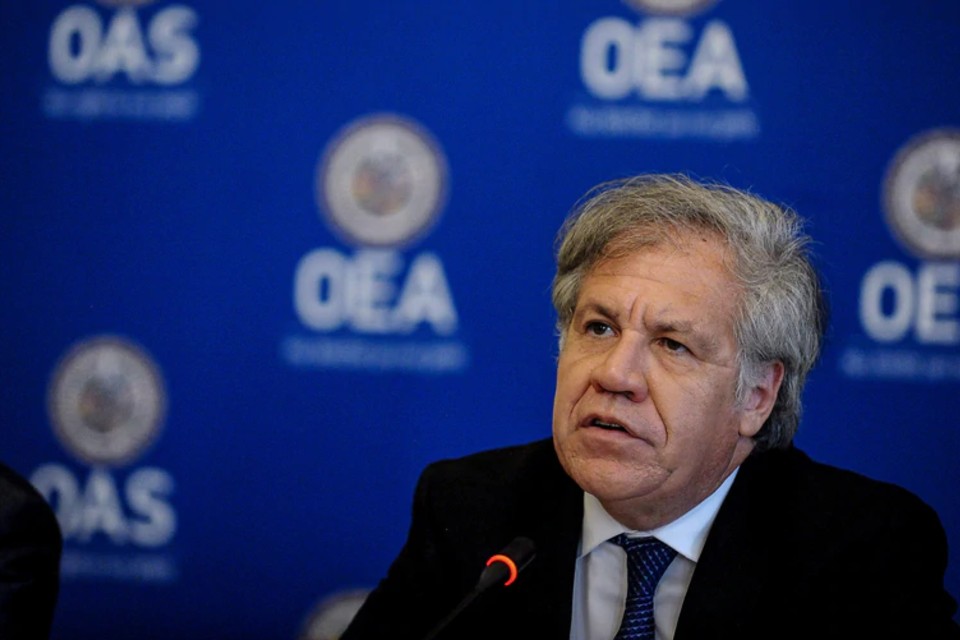The Uruguayan Foreign Ministry sent to Beijing, in March, the inputs to conclude the joint feasibility study for a Free Trade Agreement (FTA) and is waiting for the Chinese response, which since then has been in a “internal consultation process circulating the document by different organizations, informed this Monday the Undersecretary Carolina Ache at a meeting of the National Executive Committee (CEN) of the Colorado Party to which she was invited to discuss the relationship with China, participants at the meeting told The Observer.
Although the vice-chancellor recognized that the feasibility study progressing slower than expected (it was originally announced that it would be ready for December), he pointed out that the two countries maintain their commitment with the study that will determine if both states move towards a commercial negotiation.
Ache had been summoned to the Colorado executive before the proposal of deputy Ope Pasquet to discuss the relationship with China, after the differences between the two leaders of Ciudadanos on this matter became evident. Pasquet, who was undersecretary of Foreign Affairs during the first presidency of Julio María Sanguinetti (1985-1990), once again raised his “concern” andn virtue of the “approaches” that have taken place between the two countries in recent timesas he put into writing in a letter published in Search in April.
Pasquet expressed his concern about the greeting that Uruguay made to the Initiative for Global Security during the telephone conversation between Foreign Minister Francisco Bustillo and his Chinese counterpart Wang Yi on May 19. Ache relativized this show of sympathy by pointing out that the chancellor had referred to the coincidence in “some passages” of that unwritten initiative with traditional positions of Uruguay in matters of foreign policy, such as the defense of multilateralism and the peaceful and dialogued solution of controversies.
In his letter to Search he had stated his concern with the costs that could be generated for the country by being located to the east of a new iron curtain by virtue of the new global alignments. Pasquet understands that negotiating an FTA in these circumstances could be used as an element of pressure by China.
For Pasquet it can become problematic that a relationship of commercial “dependency” with China and pointed out that the current geopolitical scenario that has China and Russia in a close relationship cannot be ignored. The Colorado deputy made a particular mention of the joint declaration of the february 4 in which both presidents ratified a “friendship without limits”.
The yellow light that Pasquet turned on was not echoed by the CEN, at least with the same degree of alertness. In addition to Ache, who conveyed the government’s position on this issue, former president Julio María Sanguinetti, currently secretary general of the party body, and senator Raúl Batlle also gave their opinions.
Sanguinetti, who in his first government made the decision to establish diplomatic relations with the People’s Republic of China, called on the “prudence” based on historical experience. The former president said that “you have to be careful because there is a new cold war in the making” and he recalled that in the past the small countries had taken a position on one of the parties and then remained “trapped supporting one of the two powers“.
Meanwhile, Senator Batlle tried to give a perspective of the relationship with China. He said that the importance of the Asian giant for Uruguayan trade is decades old and it is impossible to ignore that for some time he has been buying like no one else, both to Uruguay and to its main competitors, including several allies of the United States. Although he understands that Pasquet’s concern is valid, seen from the eye of the international securityaffirmed that it is not the role of a country like Uruguay to point out alliances or claim a more critical position of the Asian power towards Russia.
For Bustillo, a new application to the Human Rights Council is “inconvenient”
At the meeting, Ache was asked if it was true that the Foreign Ministry was considering reapplying the country as a member of the United Nations Human Rights Council. The vice-chancellor ruled out that possibility, detailing that for Bustillo it was “inconvenient.”







